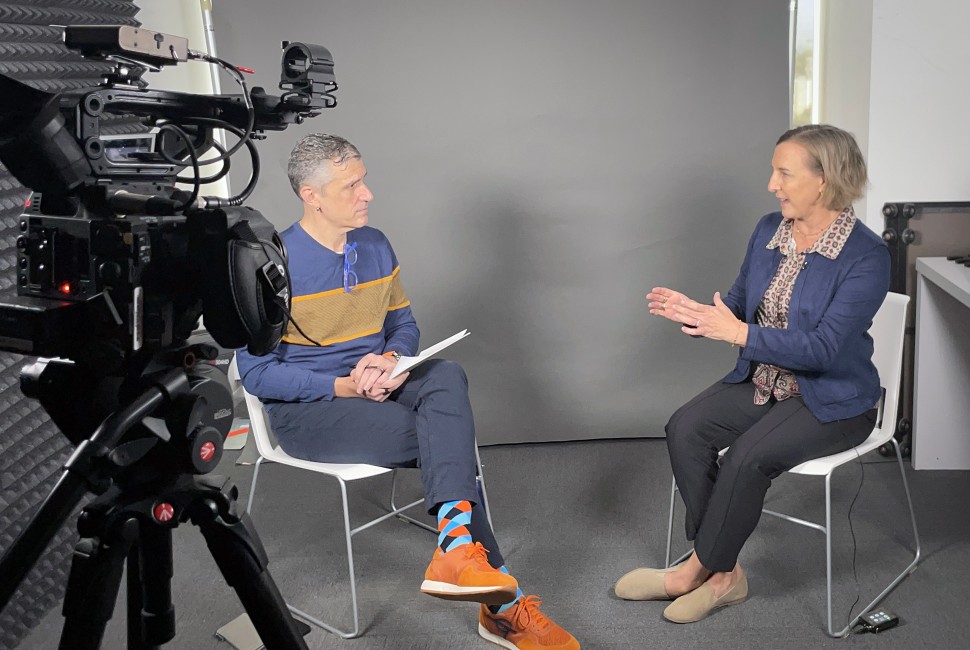Communicating complex research in a clear and easy-to-grasp manner is difficult. At Northwestern, finding guidance on how to do it more easily doesn’t have to be.
Faculty searching for resources to help them talk to the public about their research and creative work in an accessible way now have a new tool kit.
A joint initiative, co-sponsored by the Office of the Provost and the Office of Global Marketing and Communications (OGMC), offers a series of in-person and virtual workshops throughout the academic year to help faculty speak and write about their work using lay-friendly, compelling language. Information on the suite of trainings and resources can be found at a new one-stop webpage.
Sessions offered via “Communicating Your Research: How to reach a wider audience” focus on how to present and write about research in ways that resonate with peers and the public; how to work with journalists, including on-camera training and op-ed writing; how and when to reach out to OGMC ahead of new research publications or events; and how to build a social media presence.
I learned a lot about how to maintain my cool in the face of aggressive questioning.”
Professor and chair of religious studies
While many of these sessions aren’t new to the University, this is the first time they are conveniently organized in a series and displayed on an accompanying website. The Office of the Provost and OGMC are partnering to offer this important faculty training because both departments believe clear communication with the public is a priority for the University.
“The way in which new research findings are consumed seems to be evolving just as quickly as the research itself,” said Sumit Dhar, associate provost for faculty. “We are excited to collaborate with our colleagues in OGMC to share new ideas, tools and methods that will help our colleagues extend the reach of the groundbreaking new knowledge they are creating.”
According to faculty members who have attended past sessions, these trainings help attendees learn how to better distill their research and connect with their audience — including colleagues outside their field, undergraduate students or the public. These skills are not typically covered in academic training.
Beth Shakman Hurd, professor and chair of religious studies and professor of political science, said her recent Broadcast Bootcamp (on-camera interview) training helped her navigate what can often be difficult interviews given her area of expertise.
“I learned a lot about how to maintain my cool in the face of aggressive questioning and how to deflect questions that I do not want to answer,” Shakman Hurd said, adding that other tips, such as how to frame her camera for Zoom interviews or maintain good posture throughout an interview, were helpful. “I felt much better equipped to stand up for my viewpoints without feeling that I was being too assertive or cutting (the interviewer) off. I would've been uncomfortable doing that before this training.”
Working with the media, in particular, can be daunting for faculty who haven’t had much experience, yet the caliber of Northwestern’s research often attracts national and international journalists. OGMC’s media training sessions aim to demystify that process to help faculty feel more comfortable communicating their expertise during interviews.
“Every day our faculty improve lives with their research, and we feel lucky to play a role in effectively getting their messages out to the world,” said Hilary Hurd Anyaso, director of media relations in OGMC. “We’re excited to partner with the Office of the Provost to build this comprehensive suite of trainings that equip our faculty with the skills to excel in media interviews and communicate effectively with a lay audience.”
Visit the new site for comprehensive information about offerings and how to register.


